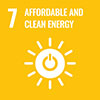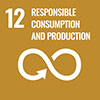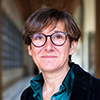The geopolitics of renewables within 21st century capitalism
The article analyses, from a historical perspective, the geopolitics of energy in the framework of the capitalist system. The first section explains the birth of the geopolitics of energy (a geography of energy by state and the kind of energy relations between states), arguing that its birth is associated with fossil fuels and its goal is the safeguarding of supremacy through both territorial control of energy sources (or flows) and their commodification. After a brief review of the geopolitics of oil, the article ventures on what, in the present context of capitalism, the geopolitics of renewables might be. The main conclusion is that, because of the inherent features of renewables, at the end of the day the outcome will be the result of a political choice. The question is whether this choice will also be aimed at both grounding hegemony on international energy relations and funding the global unbalances of the system.
ODS



 Aurèlia Mañé Estrada
Aurèlia Mañé EstradaPh.D. in Economic and Business Sciences from the Universitat de Barcelona (UB) and Master in International Relations from the Universitat Autònoma de Barcelona (UAB). She is a lecturer at the UB where she teaches subjects related to economic policy, the political economy of energy, and the economies of the Arab world. His main research topics are "oil economies" along with energy issues, from a triple perspective: political economy, geo-energetics and historical-systemic, and among his most recent publications are the books Argelia en transición hacia una segunda república (Algeria in transition towards a second republic, Icaria, 2019) and El gran negocio mundial de la energía (The big global energy business, RBA, 2016). On the other hand, he has collaborated with Casa Asia, where he created and directed the Observatory of Central Asia and is a member of the Economic History and Development Group (Industry, Business and Sustainability) of the University of Barcelona, of the Energy and Climate Change Group of the Royal Institute of International Studies of the Royal Elcano Institute and a member of the Group for the Study of Contemporary Arab and Muslim Societies (GRESAM, UCLM).



